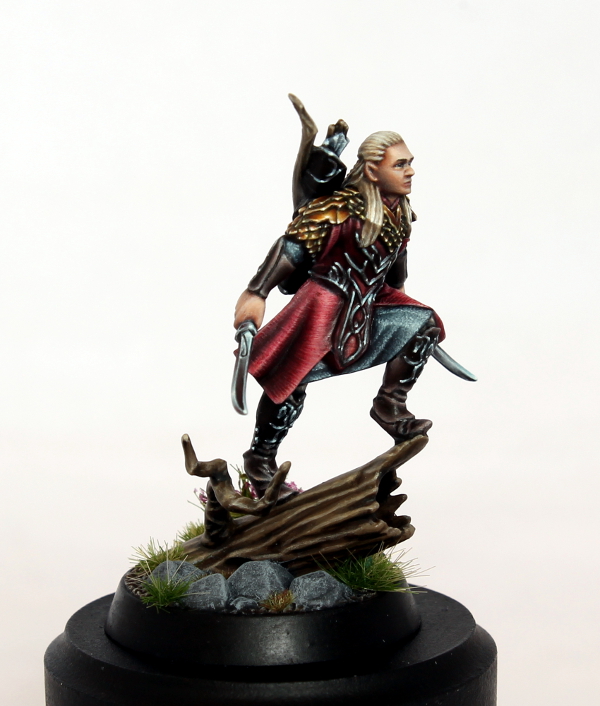Good news! If you live in the UK it has never been easier to win a golden demon. Currently there are no fewer than four golden demon painting competitions throughout the year, so no shortage of opportunities!
(If you don’t live in the UK, you have my commiserations. But it seems like things may be improving since a European competition was announced last week at very short notice.)
But even with so many possibilities, it’s not necessarily that easy to take home one of the fabled resin monstrosities. After several years of success I’ve pretty much retired from competition painting, but I thought it would be worth sharing my thoughts about the process. Entering competitions and meeting other painters is good fun (even if you’re an extreme introvert like me), but it can be even more fun if you win something.
This post will be focussed on golden demon, but I think that many of the same principles apply to other competitions. Obviously this is only my opinion as I’ve never been on a judging panel, and I don’t imagine I’m saying anything that hasn’t been said before, but there you go.
Master the fundamentals
This is pretty obvious but has to be mentioned. You need to be able to paint neatly with high contrast and smooth transitions, and have at least a rudimentary grasp of colour theory.
Unfortunately there aren’t really any shortcuts here – you will have to spend a lot of time practicing. Happily there is far more information about than there used to be so a lack of knowledge shouldn’t ever be a roadblock.
(Really useful advice there: “to win a painting award you need to get good at painting”. Genius. Hopefully the rest of this post will be a little more valuable!)
Choose your category
If you’ve never won a demon and you just want your best chance of winning one then you should consider that some categories are generally less competitive than others. Squad is generally less competitive than single miniature for example.
However, category picking is a risky game as there’s no way of knowing what other people will bring. It only takes three top notch entries to appear in your chosen category and your chances of winning just got a lot worse.
If you’ve got time, it’s not a bad idea to bring more than one entry and cover a few categories. But only if you genuinely have the time. One entry that is painted to the absolute limit of your ability is better than two that are a bit rushed.
Personally I’m not a fan of category picking. Instead you should…
Paint what inspires you
Here’s the thing: if you’re going to win, you’re probably going to have to spend many hours painting your entry when you’re pretty much sick of the sight of it.
You know how it goes, at the start of a project you’ve got loads of enthusiasm and can’t wait to get stuck in. Then about halfway through the process you’ve put plenty of time in and the thing looks cack – loads of rough blends you need to go back neaten up, bits that you caught with the brush while painting something else… Urgh.
It’s very easy to put a miniature down at this point and work on the next shiny thing instead, or just rush to completion so it’s out of the way. You’ll have a much better chance of avoiding either of these pitfalls if you were really, really keen on your subject at the outset. That’s why almost all my entries are elves and red space marines. 😉
Plan it properly
Don’t start painting until you’ve really thought through your composition (more important in some categories than others) and colour scheme. You should also have a good idea about any other elements like object source lighting or freehands you’re going to bring in before you start.
It’s a little bit cheeky me saying this, as I have been very guilty of being impatient to get stuck into painting and letting the planning side suffer. But planning is definitely a good idea: do as I say, not as I do. 😉
Make sure you respect the IP
You need to remember that Games Workshop want to use images of golden demon entries in their marketing material. So it’s not a good idea to prepare some hugely elaborate entry that doesn’t really fit into the background. I’ve seen some flat out stunning entries win nothing because of this reason.
Now this doesn’t mean that you can’t be creative. It’s just that you need to make sure that your creativity occurs within the bounds of the intellectual property. If this is too much of a limitation for you then I would recommend going to a different painting competition – there are plenty.
Bases don’t matter
Ok, a bit of an exaggeration, but it’s definitely true that a simple base is no barrier to winning. The miniature is what matters most.
Obviously don’t do something that is going to detract from the miniature, and it’s great if you can make a little scene that will reinforce the background. Just don’t get so sucked in to this that you neglect the painting on the miniature.
Oh, and you definitely don’t need to get one of those fancy name plates for your plinth. I never have. A plinth is a good idea though, as it makes life easier for the judges and photographers to handle your miniatures without worrying about breaking something. Model Display Products are great for simple resin plinths.

Play to your strengths
Are you really good at freehands but not very experienced at object source lighting? Do you have a great technique for painting faces?
A competition piece probably isn’t the best place to try and learn a new technique. Or if you really want to do something new then practice it on another miniature before you commit yourself.
Make it perfect
I can’t emphasise this enough. Ok, so it’s not possible to attain true perfection, but that shouldn’t stop you trying. This is a competition and you can’t afford to be handing something in with an obvious problem. It’s tempting to think ‘ah, they’ll never notice that little mould line’, or ‘yeah, that blend is probably good enough’.
Trust me, if you’re seriously in contention for a win then these things will get noticed.
What you want to be doing is trying to make it impossible for a judge to find something obviously wrong with the miniature. A fantastic composition and a beautiful colour scheme will not compensate for a technical error. Don’t give them a reason to put your piece out of contention.
(Incidentally I suspect that this issue is at the heart of a lot of post competition whinging. You see a lot of entries that look amazing and yet somehow come away empty handed. The chances are that they made an error that you can’t see just by looking at photos, but becomes apparent when the miniature is inspected at 3 inches under good lighting. Only the judges are in the privileged position of being able to do this, and I’m often amazed that the armchair enthusiast is so vehement that they know better. And being able to look at the pieces in the cabinet is no better – the lighting in those cabinets is awful.)
When I think I’ve finished a competition entry I like to take high resolution photos of it. In looking at the pictures I always find a few areas I think I can improve, so I go back and do it. Eventually I’ll really be struggling to find anything I think I can improve and that’s when I consider the piece competition ready.

Make it stand out
It’s really difficult to wow the judges, as the chances are they’ve seen everything before. But if you can include a few neat tricks that the competition probably won’t have done then this may help your chances – but only if you can execute them well.
Things you might consider include non metallic metal, colour fades, freehand, texturing, object source lighting, weathering.
Ask for feedback and listen to it
If you’ve been unsuccessful it’s definitely worth asking a judge the reasons why. They’re a great bunch and usually very willing to give feedback.
Once you have the feedback, don’t just dismiss it. Use it to do better next time.
Keep a sense of perspective
It has been known for an unsuccessful contestant to boo the winner at the award ceremony, and post competition whinging on the internet is usually pretty rife.
At the end of the day, this is a competition around painting toy soldiers. Yes, it’s disappointing to put so much effort into a piece and feel that it hasn’t been recognised, but really there are bigger problems in the world. Accept it and move on!
Conclusion
Well, that’s everything I can think of. I suppose a lot of this can be boiled down to having the right mind set, and how hard you’re prepared to work.
If you’ve never entered golden demon before but you’re planning on attending one of the events where a competition will be held, give it a go! It doesn’t cost anything, and what have you got to lose? Maybe you won’t win first time round but you’ll probably learn something useful. And you may get to take home a neat little finalist pin, which is guaranteed to greatly enhance your sexual magnetism whenever you wear it. 😉

 A few people have asked me about buying the 15 mm miniatures I’ve been showing off recently, so I’ve opened a
A few people have asked me about buying the 15 mm miniatures I’ve been showing off recently, so I’ve opened a 


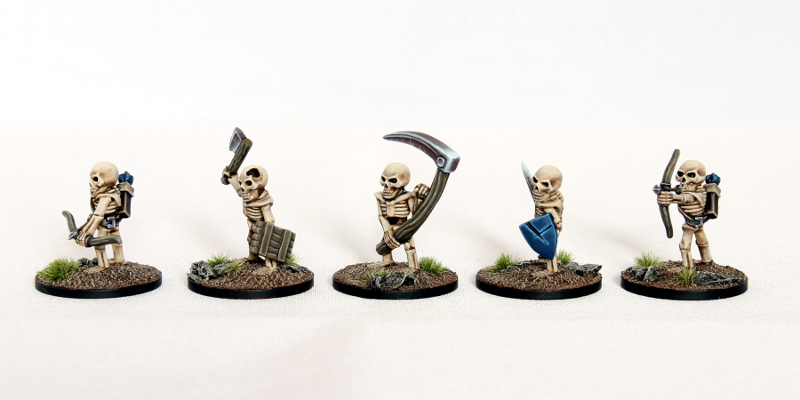
 More of the 15 mm miniatures I’ve sculpted for myself – some baddies this time! There is a vague plan to play some games with these when I’ve got enough of them. I’m thinking something like Song of Blades and Heroes or maybe Open Combat (although I don’t believe this covers fantasy particularly well at the moment). But I will also need to sort out some terrain before then.
More of the 15 mm miniatures I’ve sculpted for myself – some baddies this time! There is a vague plan to play some games with these when I’ve got enough of them. I’m thinking something like Song of Blades and Heroes or maybe Open Combat (although I don’t believe this covers fantasy particularly well at the moment). But I will also need to sort out some terrain before then.

 Recently Shapeways have started offering the snappily titled black high definition acrylate (B-HDA). At the time of writing this is a maker only material, so it’s not possible for anyone other than the model owner to order a print.
Recently Shapeways have started offering the snappily titled black high definition acrylate (B-HDA). At the time of writing this is a maker only material, so it’s not possible for anyone other than the model owner to order a print.
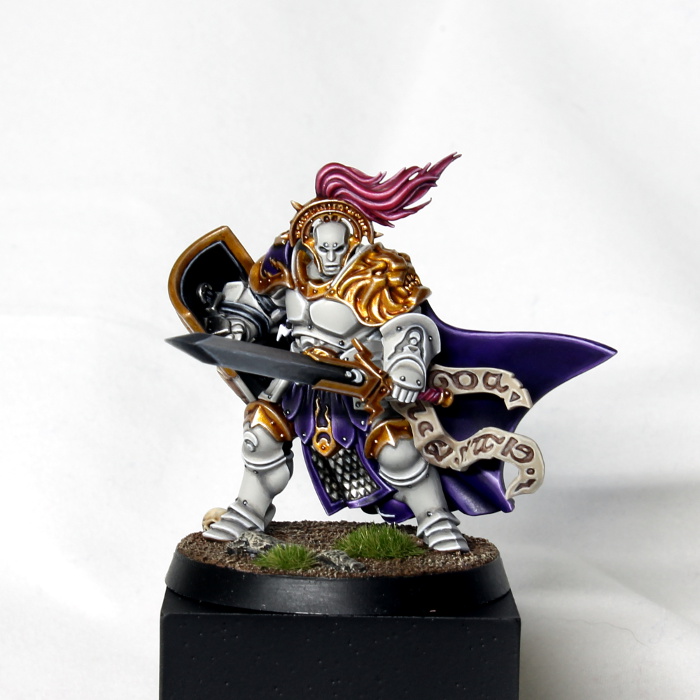
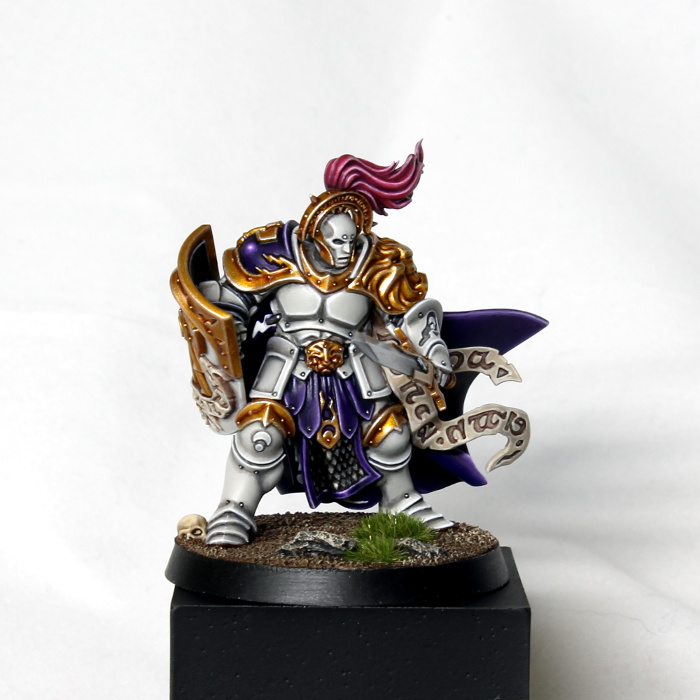
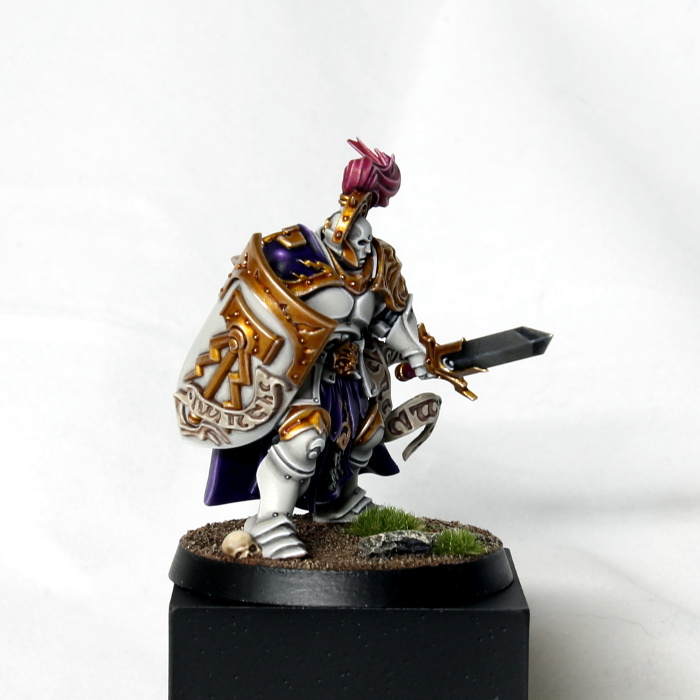
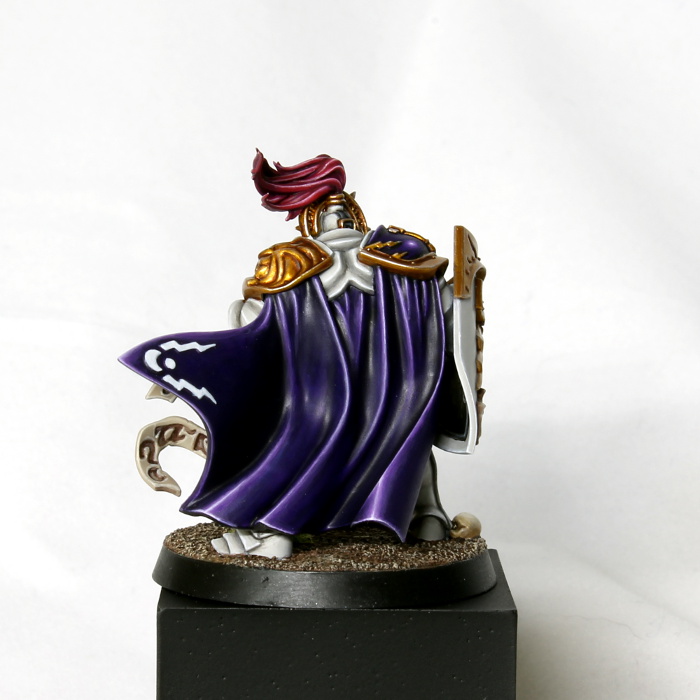
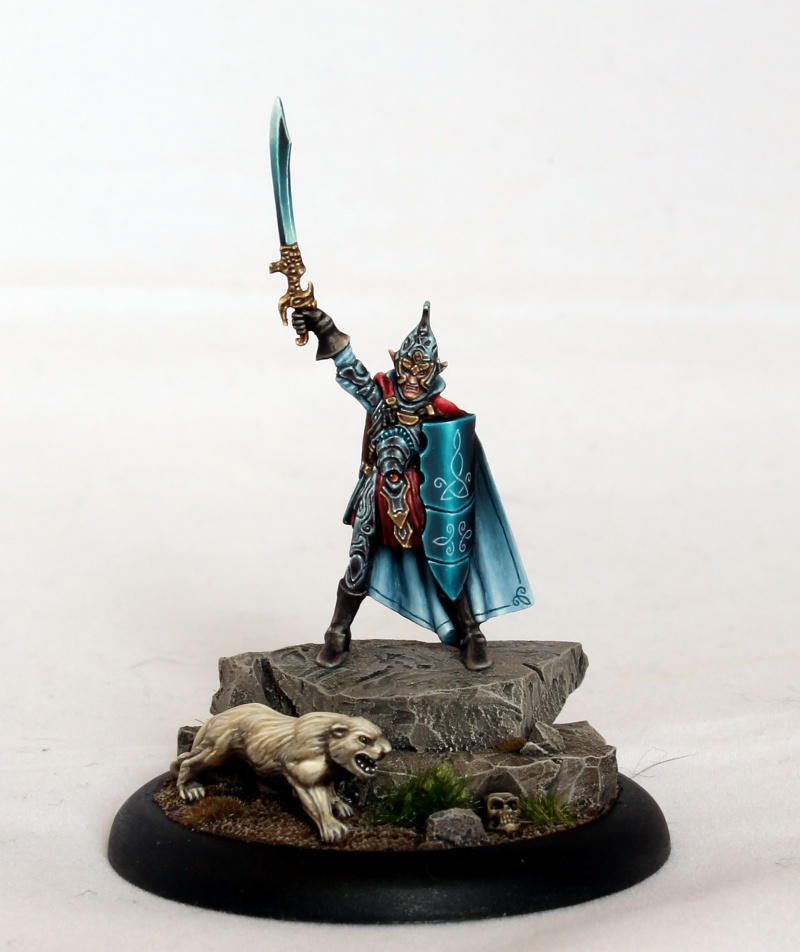



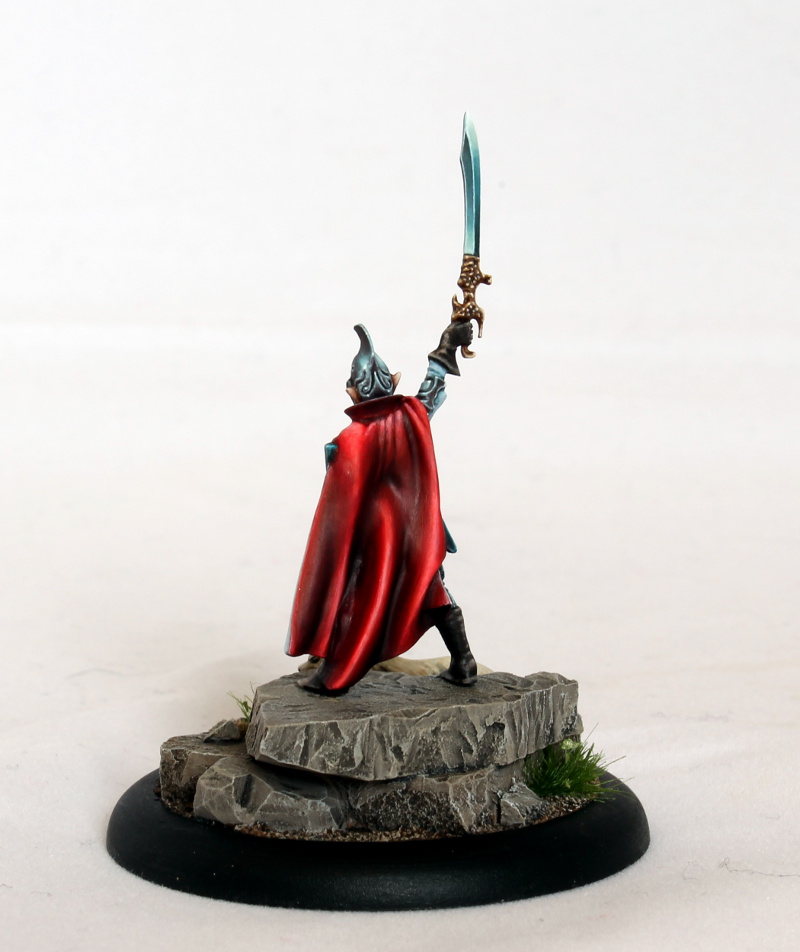
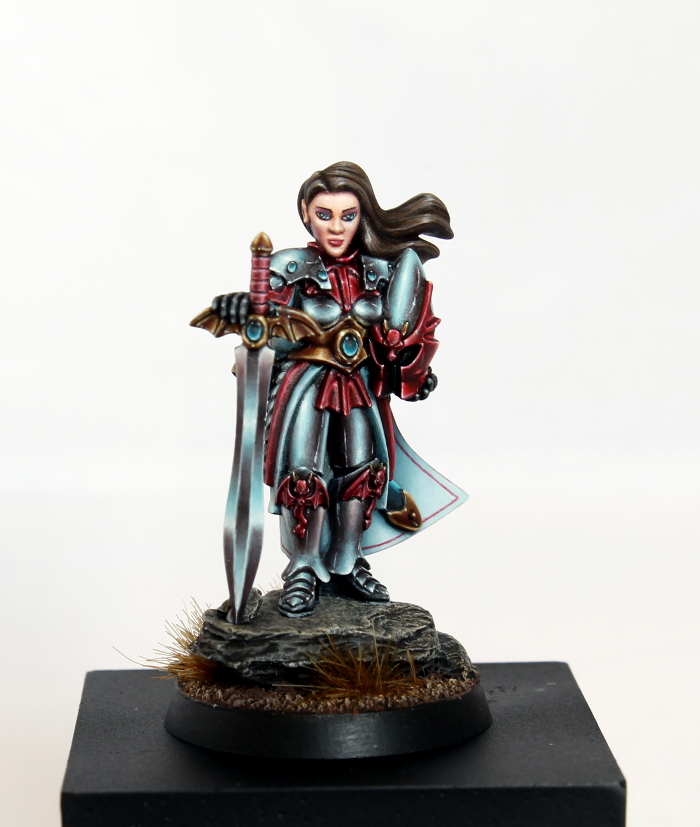

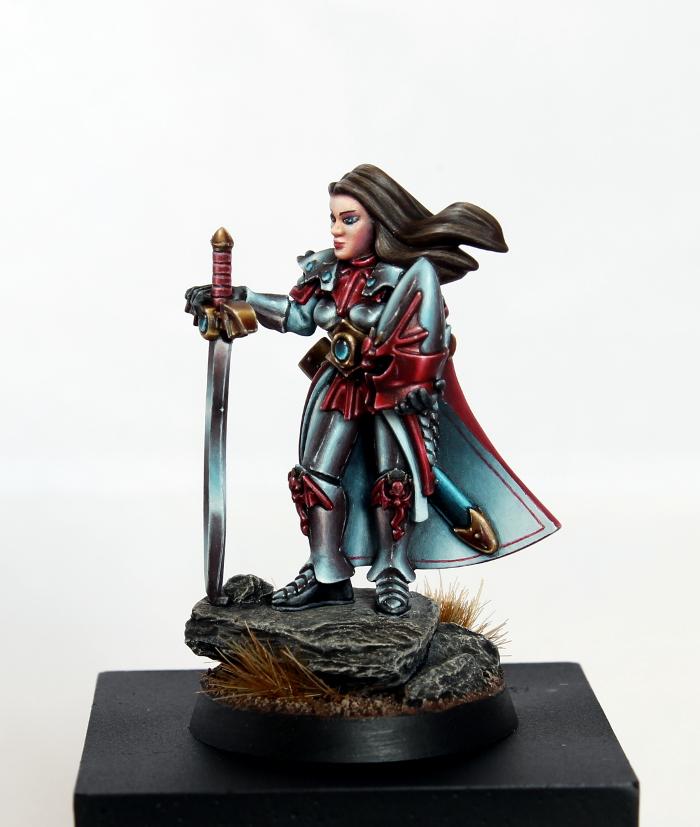


 After proving beyond doubt my total mastery of sculpting 15 mm
After proving beyond doubt my total mastery of sculpting 15 mm  I roughed out the proportions in blender and spent a fair bit of time viewing the model from every angle until I was happy that the anatomy wasn’t too awful. I then went back and refined each element, and made decisions about how the hair and the cloak would flow. Hair is an interesting element – you can either sculpt individual strands, accepting that due to the limitations of the printer they will be thicker than you’d like, or you can just sculpt the general form of the hair and let the painter deal with it. Because of my experience painting this kind of featureless hair in various plastic kits I decided to go this way. But perversely I’ve gone the other way with my 15 mm miniatures and I’m quite happy with that too!
I roughed out the proportions in blender and spent a fair bit of time viewing the model from every angle until I was happy that the anatomy wasn’t too awful. I then went back and refined each element, and made decisions about how the hair and the cloak would flow. Hair is an interesting element – you can either sculpt individual strands, accepting that due to the limitations of the printer they will be thicker than you’d like, or you can just sculpt the general form of the hair and let the painter deal with it. Because of my experience painting this kind of featureless hair in various plastic kits I decided to go this way. But perversely I’ve gone the other way with my 15 mm miniatures and I’m quite happy with that too!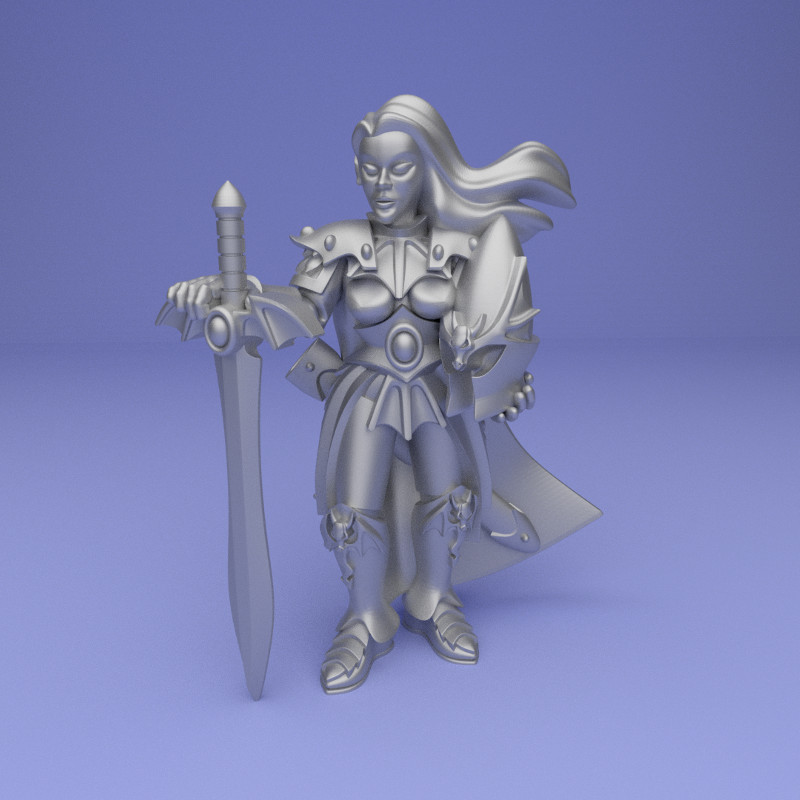
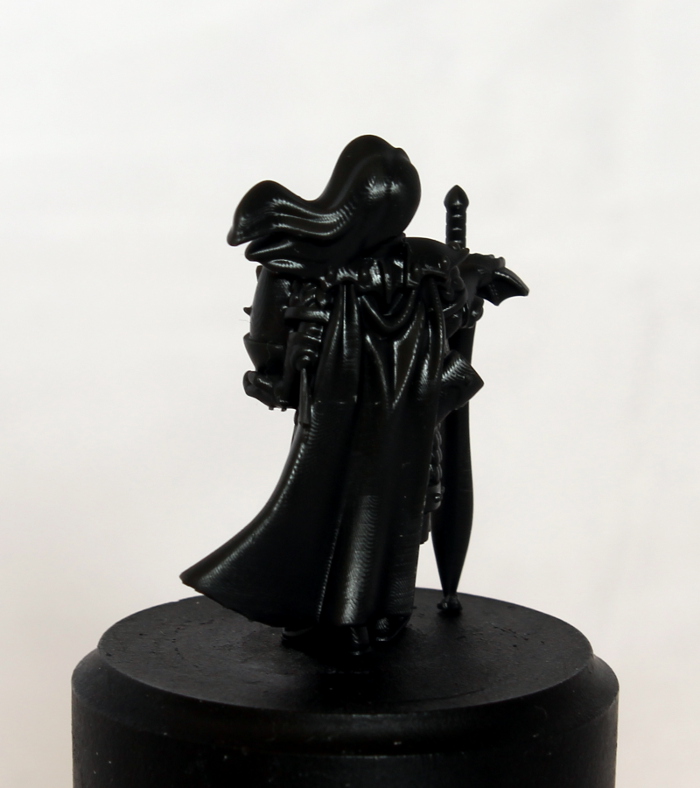

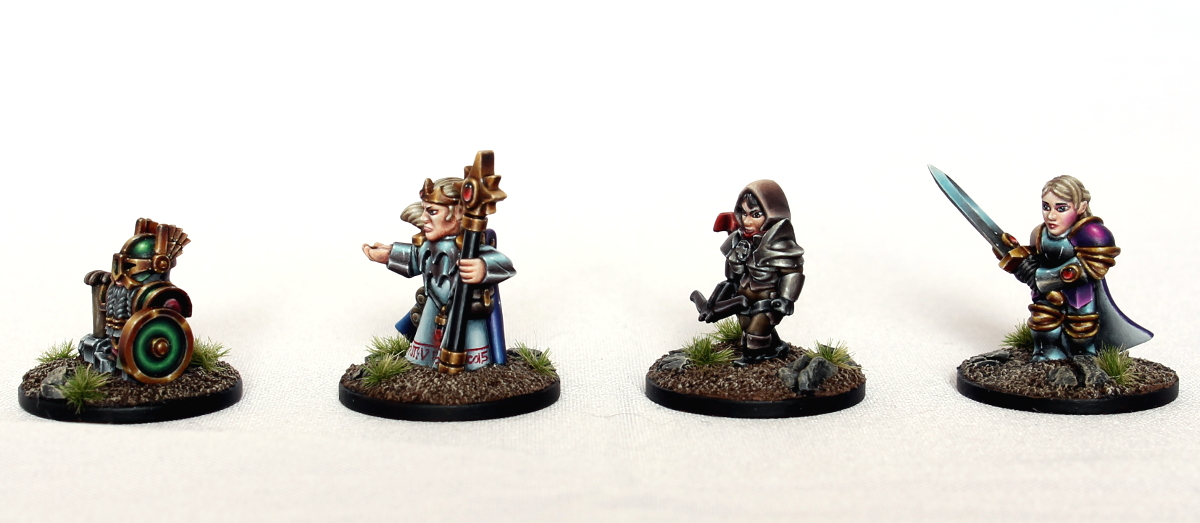
 I’ve been playing with digital sculpting on and off for a little over a year now, using
I’ve been playing with digital sculpting on and off for a little over a year now, using 

